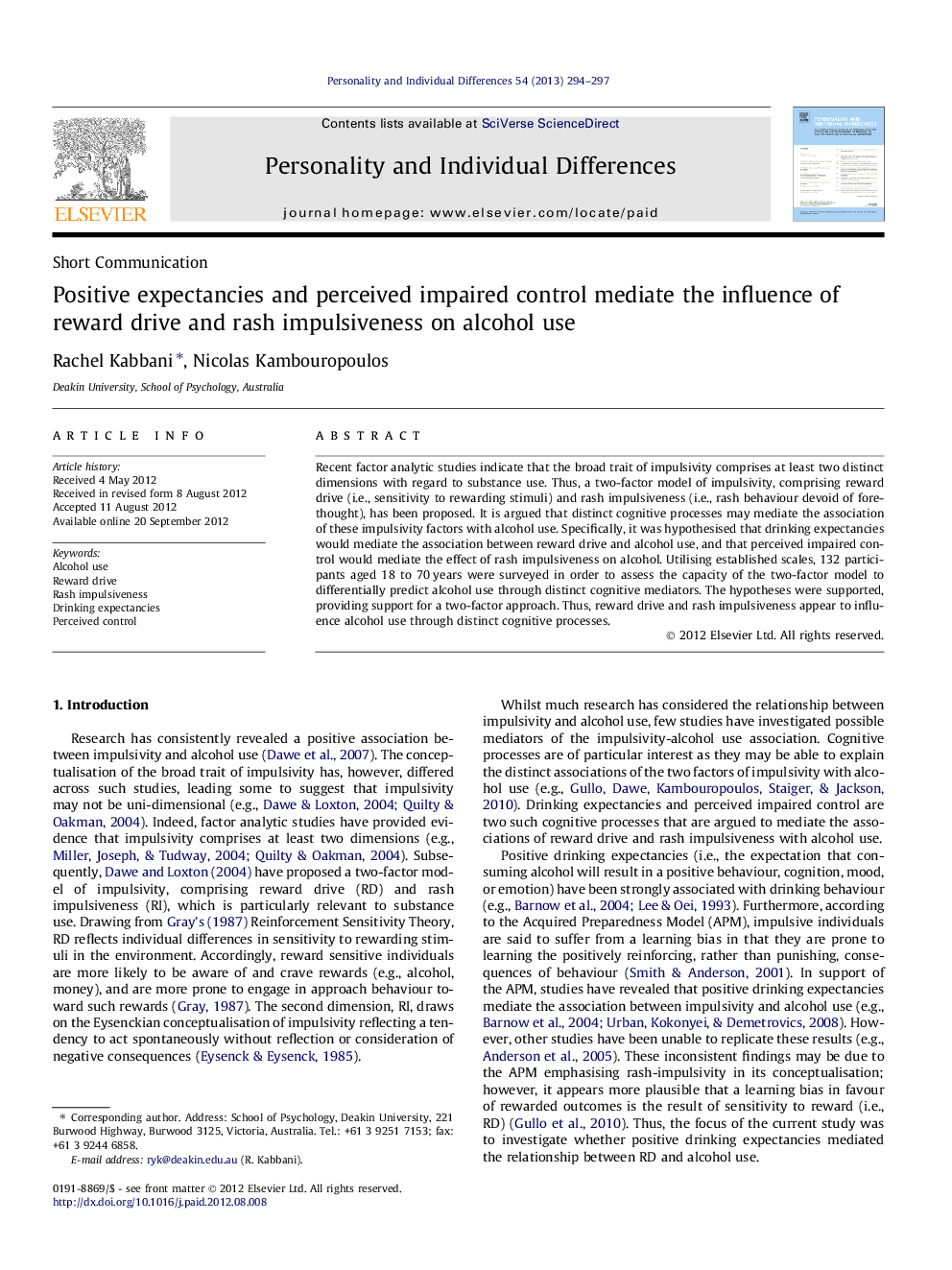| Article ID | Journal | Published Year | Pages | File Type |
|---|---|---|---|---|
| 891362 | Personality and Individual Differences | 2013 | 4 Pages |
Recent factor analytic studies indicate that the broad trait of impulsivity comprises at least two distinct dimensions with regard to substance use. Thus, a two-factor model of impulsivity, comprising reward drive (i.e., sensitivity to rewarding stimuli) and rash impulsiveness (i.e., rash behaviour devoid of forethought), has been proposed. It is argued that distinct cognitive processes may mediate the association of these impulsivity factors with alcohol use. Specifically, it was hypothesised that drinking expectancies would mediate the association between reward drive and alcohol use, and that perceived impaired control would mediate the effect of rash impulsiveness on alcohol. Utilising established scales, 132 participants aged 18 to 70 years were surveyed in order to assess the capacity of the two-factor model to differentially predict alcohol use through distinct cognitive mediators. The hypotheses were supported, providing support for a two-factor approach. Thus, reward drive and rash impulsiveness appear to influence alcohol use through distinct cognitive processes.
► Reward drive and rash impulsiveness have been suggested to differentially influence alcohol use. ► Expectancies and perceived control predict alcohol use and are closely tied to impulsivity. ► Expectancies and perceived control mediated the effect of impulsivity factors on alcohol use. ► Reward drive and rash impulsiveness influence alcohol use through distinct cognitive processes.
